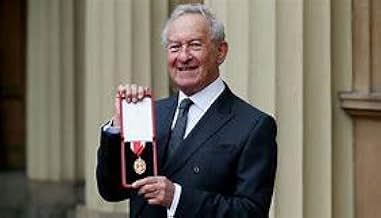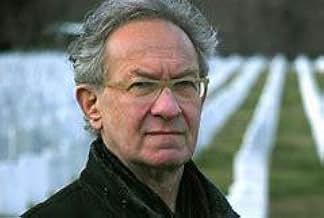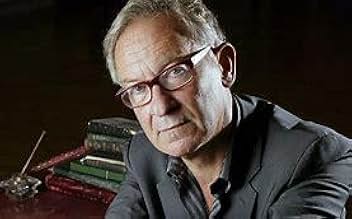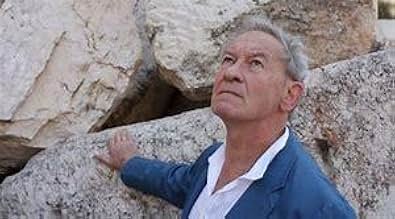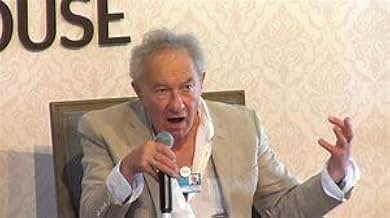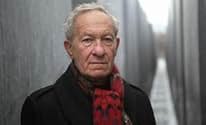Adicionar um enredo no seu idiomaSimon Schama journeys through 5,000 years of life in the British Isles.Simon Schama journeys through 5,000 years of life in the British Isles.Simon Schama journeys through 5,000 years of life in the British Isles.
- Indicado para 4 prêmios BAFTA
- 2 vitórias e 5 indicações no total
Explorar episódios
Enredo
Você sabia?
- ConexõesFeatured in The 50 Greatest Documentaries (2005)
Avaliação em destaque
If you are looking to learn about the "History of Britain" this documentary will not aid you. There has never yet been a particularly competent attempt by any documentary film makers towards making, "at least," a summarised history of Britain, so I can forgive the BBC – but they really have set the bar very low.
Before you conclude that I hate this series, let me correct you, I do love it – I love the way Schama articulates history and I love being able to see genuine locations, pictures and music (especially the wonderful period music) which are, evidently, absent in history books. However, as a Historian, I must caution viewers who believe that they are going to understand, let alone "learn" the history of Britain from this series. With only seventeen episodes, the BBC have set themselves an impossible task. You will hear seventeen, well scripted dialogues about "ideas" in British history – unattainably succinct summaries of vast stretches of time, sometimes two centuries surrounding "themes" such as "death," "nations," "dynasties," being the "wrong empire," and so forth. This, while often poetic and elegant in its delivery, manages to omit an unbelievable amount of details which simply makes this history, at times, appear completely devoid of persons and the driving force of individuals.
You will hear nothing of most of the Britons and Saxons, you will listen as some of the most important battles of the middle ages are utterly ignored, you will pass through the renaissance untouched by the complexities or details of that most formative of English wars – the War of the Roses. Do you want to know about Marlborough and how Britain helped to forge the entire shape of Eighteenth Century Europe? You won't. Do you want to know, not just a minor detail, but the major details of the Hanoverian monarchs, the seven years war, the development of the greatest parliamentary system the world had yet seen along with its master statesmen, Walpole, Burke, Pitt? You won't in the least – beyond a minor quote here or there. Indeed, the entire Eighteenth Century is reduced to ideas, pies in the sky, of which nothing substantial is told, other than that Schama wishes to impose political correctness on a world with different values than him from three centuries ago.
Do you want to know how the British Empire was built? You won't, you won't hear of any of the exploits of Wellesley in India, Sir Garnet in Africa, of Wolfe in Quebec, of Cook – but you will hear about famine, and nothing of the immense expense expended by Curzon to prevent them – you will hear about how you ought to be ashamed, and little of the opposite. Of course this is to be expected of the BBC, they have never once produced a documentary detailing the origins and growth of the British Empire, even though it is a key element of British history. Britain is a country with a history which it refuses to tell – for reasons I know not, for it is perhaps the greatest history of all countries. Could it perhaps just be the unfortunate result of political motivations? I do think that Schama is telling stories well, that is fundamentally what history is – he is telling a particular story however, and it is not the story of "the" history of Britain, it is "a" history of Britain, one which tends to miss facts which matter most to the complexion and character of that history which most Britons would have known by heart before political correctness set in, in the 1960s. The story, and how you tell it, is the scaffolding of a history – I would grant that Schama does that well, but the facts within, those are the building materials of the British historical façade. Instead of showing us the façade, he begins to analyse it without revealing what shape it is first – this is perhaps the influence of the E. H. Carr and Fines approach to teaching history from the perspective of the historian, i.e. "views" and "skills & methods" over content – you simply cannot analyse that which you don't know about.
The British, and those who are trying to understand them from overseas, require a map of history – simply the facts, what has happened. I do not discount that Schama's analysis "may" be valid, the Schama's presentation is elegant – I do discount that he has presented a map of history, a thing which, in terms of documentaries, simply is not available. I would never shy away from suggesting people to simply "read" history before they watch a documentary about a topic, but fewer people are reading these days and frankly, a documentary allows you to visualise and internalise information in a way words alone cannot – which is also a dangerous fact, which should encourage whomever is making such a documentary to err on caution when taking stances on issues historic.
In short, I think that the approach which Schama has taken works best in "small" less ambitious works. Think instead of this series as seventeen separate documentaries analysing certain ideas in certain time periods and "not" as a coherent, comprehensive, façade or image of "what happened" in British history. There does "not" exist a history of Britain in documentary form, if you are looking for it, this is not it. Meanwhile, I urge the BBC, or whoever has the capacity, to provide a history of Britain. It is needed to help develop the country's historic memory – which like memory in a human is key to personality and character. Such a history, fundamentally, but not be critical (that can be left to individual documentaries) but must be celebratory, it must be something to give people value and something which matters deep in their hearts – Britain.
Before you conclude that I hate this series, let me correct you, I do love it – I love the way Schama articulates history and I love being able to see genuine locations, pictures and music (especially the wonderful period music) which are, evidently, absent in history books. However, as a Historian, I must caution viewers who believe that they are going to understand, let alone "learn" the history of Britain from this series. With only seventeen episodes, the BBC have set themselves an impossible task. You will hear seventeen, well scripted dialogues about "ideas" in British history – unattainably succinct summaries of vast stretches of time, sometimes two centuries surrounding "themes" such as "death," "nations," "dynasties," being the "wrong empire," and so forth. This, while often poetic and elegant in its delivery, manages to omit an unbelievable amount of details which simply makes this history, at times, appear completely devoid of persons and the driving force of individuals.
You will hear nothing of most of the Britons and Saxons, you will listen as some of the most important battles of the middle ages are utterly ignored, you will pass through the renaissance untouched by the complexities or details of that most formative of English wars – the War of the Roses. Do you want to know about Marlborough and how Britain helped to forge the entire shape of Eighteenth Century Europe? You won't. Do you want to know, not just a minor detail, but the major details of the Hanoverian monarchs, the seven years war, the development of the greatest parliamentary system the world had yet seen along with its master statesmen, Walpole, Burke, Pitt? You won't in the least – beyond a minor quote here or there. Indeed, the entire Eighteenth Century is reduced to ideas, pies in the sky, of which nothing substantial is told, other than that Schama wishes to impose political correctness on a world with different values than him from three centuries ago.
Do you want to know how the British Empire was built? You won't, you won't hear of any of the exploits of Wellesley in India, Sir Garnet in Africa, of Wolfe in Quebec, of Cook – but you will hear about famine, and nothing of the immense expense expended by Curzon to prevent them – you will hear about how you ought to be ashamed, and little of the opposite. Of course this is to be expected of the BBC, they have never once produced a documentary detailing the origins and growth of the British Empire, even though it is a key element of British history. Britain is a country with a history which it refuses to tell – for reasons I know not, for it is perhaps the greatest history of all countries. Could it perhaps just be the unfortunate result of political motivations? I do think that Schama is telling stories well, that is fundamentally what history is – he is telling a particular story however, and it is not the story of "the" history of Britain, it is "a" history of Britain, one which tends to miss facts which matter most to the complexion and character of that history which most Britons would have known by heart before political correctness set in, in the 1960s. The story, and how you tell it, is the scaffolding of a history – I would grant that Schama does that well, but the facts within, those are the building materials of the British historical façade. Instead of showing us the façade, he begins to analyse it without revealing what shape it is first – this is perhaps the influence of the E. H. Carr and Fines approach to teaching history from the perspective of the historian, i.e. "views" and "skills & methods" over content – you simply cannot analyse that which you don't know about.
The British, and those who are trying to understand them from overseas, require a map of history – simply the facts, what has happened. I do not discount that Schama's analysis "may" be valid, the Schama's presentation is elegant – I do discount that he has presented a map of history, a thing which, in terms of documentaries, simply is not available. I would never shy away from suggesting people to simply "read" history before they watch a documentary about a topic, but fewer people are reading these days and frankly, a documentary allows you to visualise and internalise information in a way words alone cannot – which is also a dangerous fact, which should encourage whomever is making such a documentary to err on caution when taking stances on issues historic.
In short, I think that the approach which Schama has taken works best in "small" less ambitious works. Think instead of this series as seventeen separate documentaries analysing certain ideas in certain time periods and "not" as a coherent, comprehensive, façade or image of "what happened" in British history. There does "not" exist a history of Britain in documentary form, if you are looking for it, this is not it. Meanwhile, I urge the BBC, or whoever has the capacity, to provide a history of Britain. It is needed to help develop the country's historic memory – which like memory in a human is key to personality and character. Such a history, fundamentally, but not be critical (that can be left to individual documentaries) but must be celebratory, it must be something to give people value and something which matters deep in their hearts – Britain.
- lxndrnll
- 16 de dez. de 2012
- Link permanente
Principais escolhas
Faça login para avaliar e ver a lista de recomendações personalizadas
- How many seasons does A History of Britain have?Fornecido pela Alexa
Detalhes
- Data de lançamento
- País de origem
- Central de atendimento oficial
- Idioma
- Também conhecido como
- Саймон Шама: История Британии
- Locações de filme
- Empresa de produção
- Consulte mais créditos da empresa na IMDbPro
- Tempo de duração1 hora
- Cor
- Proporção
- 1.78 : 1
Contribua para esta página
Sugerir uma alteração ou adicionar conteúdo ausente

Principal brecha
By what name was A History of Britain (2000) officially released in Canada in English?
Responda






